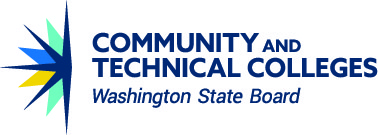NSC Bugs and Other Known Issues
Purpose: This document provides colleges and staff involved in National Student Clearinghouse (NSC) reporting with a centralized and concise overview of known bugs, issues, and reporting challenges.
Audience: Student Records.
Overview
Several known bugs and issues currently affect how data is reported to the National Student Clearinghouse (NSC) and how colleges manage error and warning corrections. This QRG is subject to change as new issues are identified and resolved.
Bugs
Affected Navigation:
Records and Enrollment > Enrollment Reporting > Consolidated Statistics > Student Consolidated Statistics
Issue:
When a DATA row is used to backdate an Admit Term (e.g., move an Admit Term from 2257 to 2253), the original Admit Term and not the new, backdated admit term is reported to NSC and NSLDS via the NSC report.
Workaround:
- In order to ensure that Admit Terms are reported correctly, do not use a DATA row to backdate an Admit Term.
- Instead, create a new Student/Program Plan stack (using the Add a New Value tab) and admit the student into the same plan code with the earlier admit term. Then, DISC the original Program/Plan stack.
- Do not use Correct History to backdate Admit Terms. Doing so can cause significant, unwanted impacts on Financial Aid.
Issue:
- For some students, Withdrawal grades are not correctly excluded from the reported NSC enrollment load. As a result, these students appear
- In our system, this issue appears to impact NOAWS - NASOT students who have withdrawn from all classes for the reported term.
Detection Method:
- Navigation: Records and Enrollment > Enrollment Reporting > Consolidated Statistics > Mass Consolidated Statistics
- Choose the current enrollment reporting period, then filter for students with a Withdrawal\ Cancel status of "Withdraw."
- Use the sort function (click on the column header to sort) to find students with an Academic Load Calculated value other than "No Units." These students will need a manual adjustment on the Student Consolidated Statistics page in order to be reported correctly to NSC.
Impact on NSLDS:
This bug does not often cause issues with NSLDS reporting as NOAWS - NASOT students are not eligible for Title IV financial aid.
Other Known Issues
Issue:
- Due to a lack of delivered configuration options, it is currently not possible to report a plan code with a COD Credential Level of "99" using the delivered options for the NSC Classification filed on the Academic Plan table.
Status:
- Oracle does not consider this issue a bug.
- SBCTC has submitted an enhancement request with Oracle to resolve this issue.
- In the meantime, colleges must make additional manual configuration adjustments to the COD Credential Cross Reference table to correctly report Non-Credential (Program Level 99) Plan Codes.
For More Information:
- For additional information and manual configuration steps, refer to the Reporting Academic Plan as a COD Level 99 (Non-Credential) Program QRG
Context:
- The National Student Clearinghouse has launched a new set of warning codes intended to improve campus-level and program-level status start date reporting accuracy for terms that take place after a non-standard term. For ctcLink colleges, this impacts Fall reporting as it takes place immediately following Summer term (which is a non-standard term).
Impact:
- These new warning codes, which include 292, 1861-1866, and 1901-1906, were released in September 2024 and now appear on Fall Error Resolution Reports. For additional information about these new warning codes, see Enhancement! New Warning Codes 292 and series 1861-1866 and 1901-1906.
- Colleges will experience a higher-than-normal level of Error Resolution Report warnings. Warnings will impact students enrolled at less than half-time status during the summer term who are now enrolled at least half-time status for Fall. As many students do not enroll in the summer term, this impacts many students enrolled in Fall 2024.
Status:
- This issue impacts all colleges and universities that use delivered ctcLink functionality to report to NSC. We are waiting for NSC and Oracle to collaborate on developing a solution. For the time being, these new warnings will need to be addressed manually by campus NSC reporters.
- These warnings are not the result of inaccurate data in ctcLink but of inaccurate logic used to generate delivered PeopleSoft NSC reports.
- At this time, warnings must be addressed manually through NSC's secure portal.
- We recommend reviewing NSC's Error Resolution Report Guide for additional information on addressing specific errors and warnings through the NSC portal.
- This issue impacts all colleges and universities that use delivered ctcLink functionality to report to NSC. Many systems, including SBCTC, have submitted service requests to Oracle requesting code updates in PeopleSoft to address this issue. Oracle has not yet provided a timeline for resolving this issue.
- Oracle has requested that SBCTC provide additional information about the number of 292, 1861, 1866, and 1901 1906 warning messages being received, as well as some example data that has been reported for real students.
-
If your college is receiving higher-than-normal warning numbers, please consider submitting a ticket that includes the following:
- Screenshot of your overall error/warning count (do not include student data within the screenshot).
- The EMPLIDs and detailed error/warning information for three example students who have received one of the new warning codes.
- SBCTC will use the error count numbers and anonymous data reported for example students while troubleshooting this issue with Oracle.


0 Comments
Add your comment